Mechanical fitter career guide: Salary, qualifications, and career path in South Africa
Mechanical fitters play an important role in various industries, including mining, manufacturing, and energy, by building, repairing, and maintaining equipment. In South Africa, the average annual salary is approximately R269,400 for a mechanical fitter, depending on experience, skills, and industry.
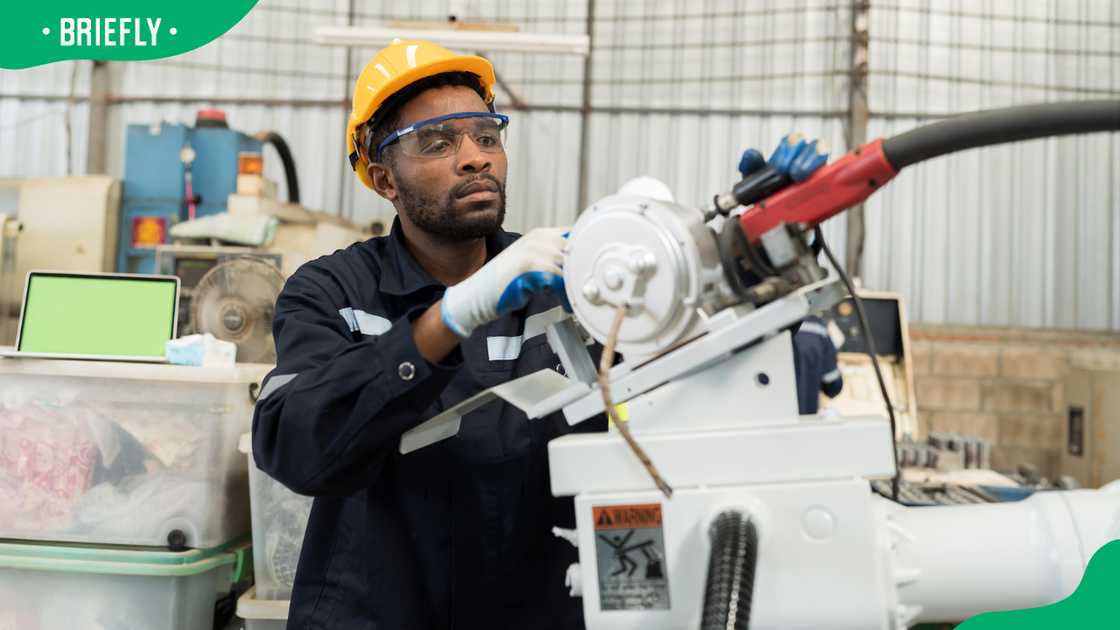
Source: Getty Images
TABLE OF CONTENTS
- Key takeaways
- What is a mechanical fitter?
- Frequently asked questions
- Conclusion
Key takeaways
- Mechanical fitters build, install, and repair machines in various industries, including mining, manufacturing, and energy.
- Entry-level salaries start at approximately R8,000 per month, while experienced fitters can earn up to R30,000 per month.
- To qualify, you need matric, technical training (N1–N3), an apprenticeship, and a trade test (Red Seal).
What is a mechanical fitter?
A mechanical fitter is a skilled worker who builds, installs, maintains, and repairs machines, engines, and mechanical systems. They make sure equipment works properly in places like factories, mines, power plants, and workshops.

Source: Getty Images
Key duties of a mechanical fitter
Below are some of the key duties and responsibilities of a mechanical fitter:
- Assemble, fit, and install mechanical components and systems.
- Inspect machines and equipment to identify faults or worn-out parts.
- Repair or replace damaged parts to keep equipment working.
- Perform routine maintenance to prevent breakdowns.
- Use tools and machinery for cutting, welding, grinding, and shaping parts.
- Read and follow blueprints, diagrams, and technical instructions.
- Work with mechanical engineers, electricians, and other team members on projects.
- Follow safety rules and keep the workplace clean.
Mechanical fitter salary in South Africa
According to Payscale, the average annual salary for a mechanical fitter in South Africa is approximately R269,400 in 2025. Other sources, such as Salary Expert, also estimate their average annual salary to be around R245,589 annually or an equivalent hourly rate of R118.
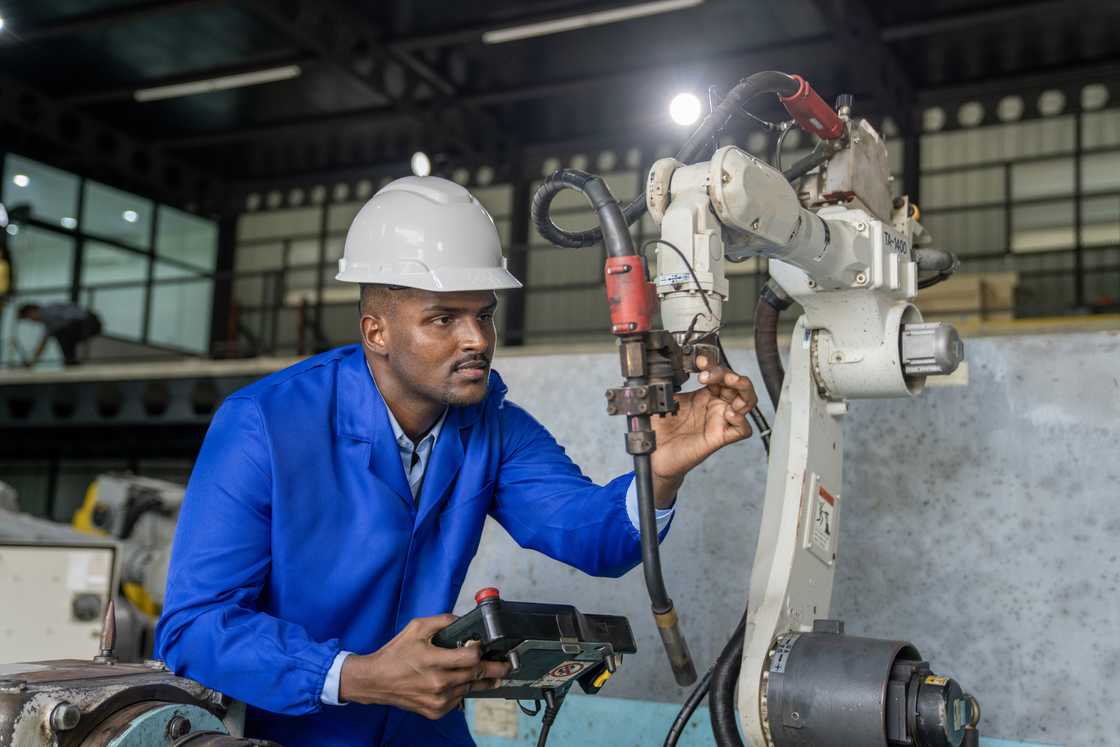
Source: Getty Images
How much do mechanical fitters get paid per month in South Africa?
Mechanical fitters in South Africa earn about R8,000 to R30,000 per month, depending on their experience, skills, and industry. Below is a detailed breakdown of mechanical fitter salaries in South Africa in 2025 by experience level.
Experience level | Years of experience | Average base salary |
Early career | 1–4 years | R197,420 |
Mid-career | 5–9 years | R346,000 |
Experienced | 10–19 years | R372,000 |
Late career | 20 years and higher | R366,200 |
The highest paying companies for a mechanical fitter in South Africa

Read also
“It’s nothing, bro”: Man reveals senior Java developer payslip, SA reacts to tech industry earnings
As documented by Indeed, some companies, especially those in mining, energy, and heavy manufacturing, provide higher salaries because of the tough working conditions and specialised skills required. Below is a look at some of the top-paying companies where mechanical fitters can earn more.
Company | Average annual salary |
Karamtara Engineering Pvt. Ltd | $300,000 |
Generator Supercentre | $299,000 |
One need solutions | $228,000 |
Tennessee Board of Regents | $208,000 |
CEM Medical | $195,000 |
Healthy pharmacy | $195,000 |
What are the mechanical fitter qualifications in South Africa?
Becoming a mechanical fitter requires a mix of education, technical training, and practical experience to qualify for the trade. Below are the main qualifications needed to become a mechanical fitter in South Africa.
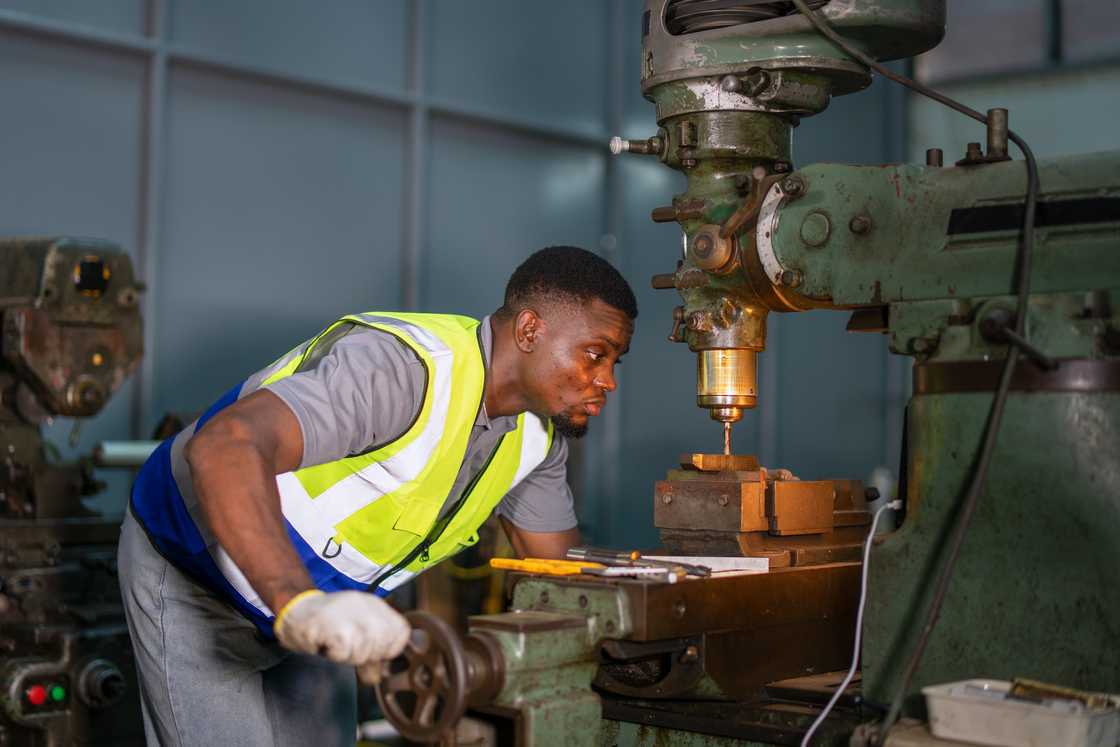
Source: Getty Images
Academic entry requirements
- Minimum education: You usually need Grade 12 (Matric). Having Maths and Physical Science helps a lot. Sometimes, a lower level like Grade 9 or 10 may get you into entry-level or training programs.
- N-courses: Many training institutions will require you to hold a National Certificate (N2) with subjects such as Mathematics, Science, Engineering Drawing and Trade Theory.
If you have Grade 12 with good passes in Maths and Science (over 40%), you may only need to complete the Engineering Drawing and Trade Theory modules to achieve your N2.
Mechanical fitter apprenticeship path
You need to complete a mechanical fitter course, known as an apprenticeship, which usually takes three years. The program is accredited by the Manufacturing, Engineering and Related Services Sector Education and Training Authority (MerSETA) and overseen by the Quality Council for Trades and Occupations (QCTO).
The process culminates in a national trade test, which, if passed, earns you a Red Seal qualification.
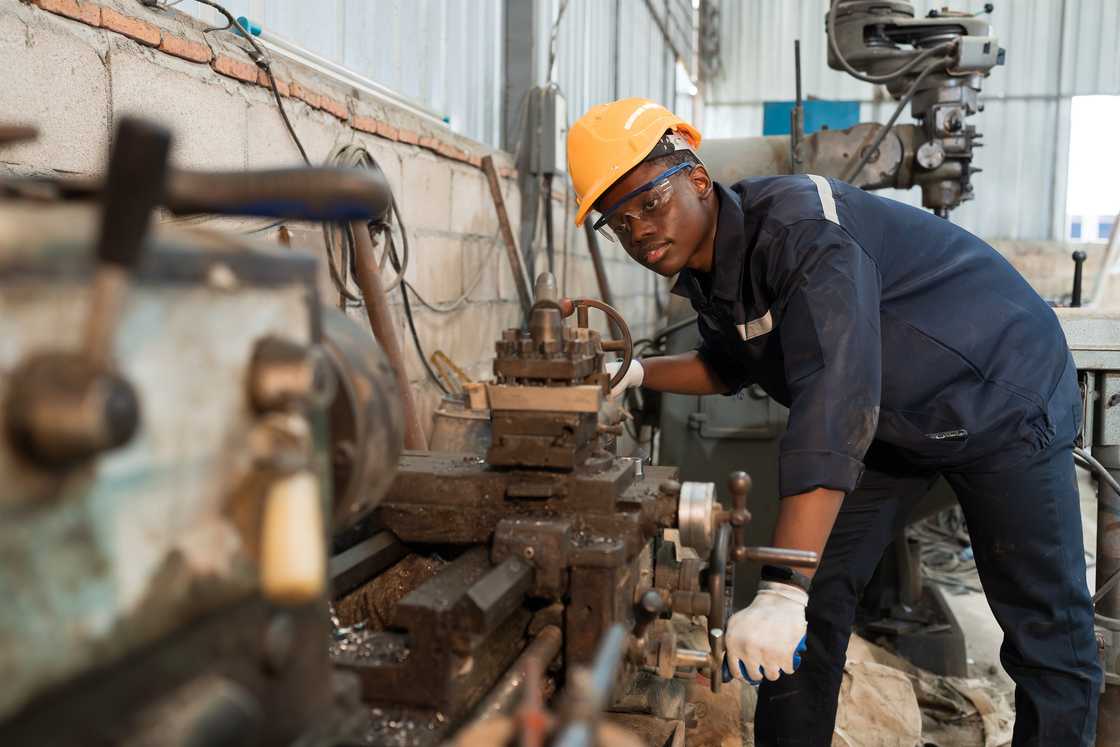
Source: Getty Images
Trade test/artisan certification
After completing theory, technical certificates, and workplace training, you take a trade test. The test is a summative, external assessment that includes written and practical tasks and is conducted at a QCTO-accredited assessment centre.
After successfully passing the trade test results in an Occupational Certificate: Mechanical Fitter (SAQA ID: 94021), you earn your "Red Seal" qualification, officially recognising you as a qualified artisan.
Mechanical fitter skills list
Mechanical fitters require a combination of several skills to help them perform their duties efficiently. Here is a clear list of important skills for a mechanical fitter:

Read also
Overcrowding crisis: South Africa's prisons house 170,000 inmates in a 107,000 bed capacity system
- Blueprint reading: Able to read and understand drawings, diagrams, and plans to correctly put together and install machines.
- Hand and power tools: Able to use common hand tools like wrenches, screwdrivers, and files, as well as power tools like drills, saws, and milling machines.
- Mechanical assembly: Skilled at putting machine parts together and making sure all components fit and work properly.
- Maintenance: Experience in preventive, corrective, and routine maintenance of mechanical systems, equipment, and components.

Source: Getty Images
- Fault-finding and diagnostics: Ability to identify, diagnose, and troubleshoot mechanical issues in malfunctioning systems.
- Equipment operation: Competence in operating a variety of specialised tools and machinery.
- Physical fitness: Have strength, energy, and stamina to handle tough and physically demanding work.
- Attention to detail: Carefully checking and fitting parts with accuracy to make sure everything works well and is of good quality.
- Problem-solving: Analytical and effective decision-making skills to address unexpected technical issues.
- Communication: Clear and concise verbal and written communication skills to collaborate with team members and management.
Frequently asked questions
How long is the mechanical fitter course?
A full mechanical fitter course, which includes both theoretical learning and practical workplace experience, takes 3 years to complete. This program leads to an Occupational Certificate: Mechanical Fitter and a Red Seal qualification.
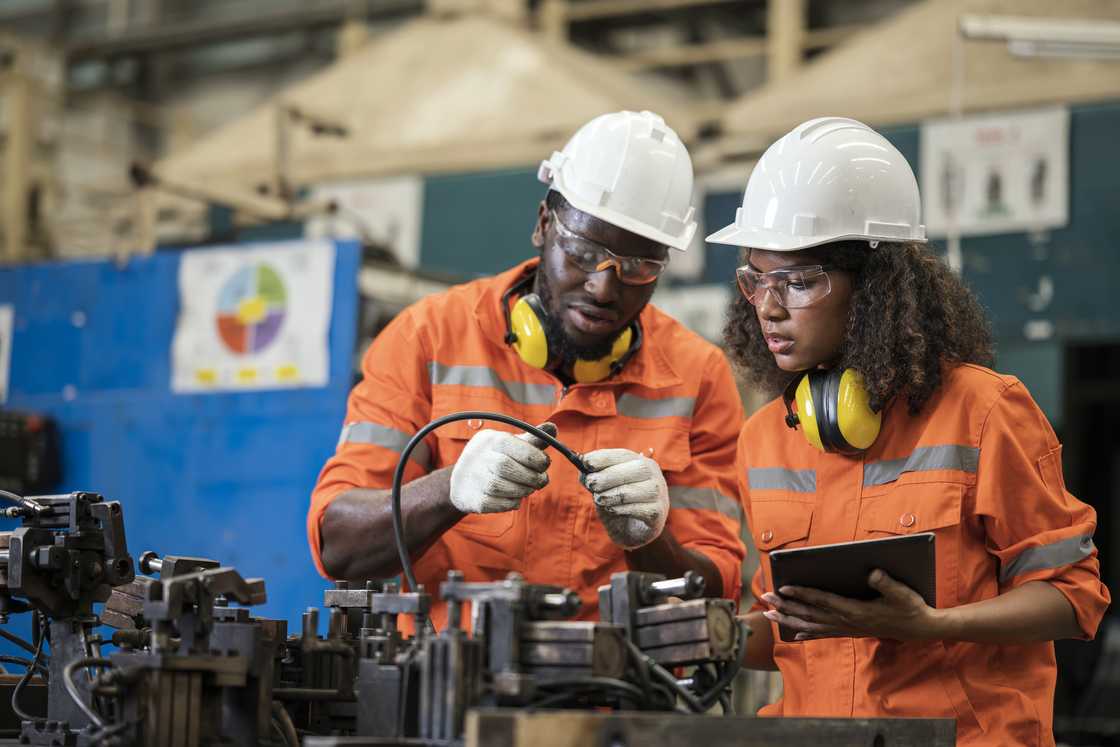
Source: Getty Images
How much does Eskom pay mechanical fitters?
As per Glassdoor, the estimated average salary for a mechanical fitter at Eskom is $87,982 per year or $42 per hour.
Is a mechanical fitter a hard job?
Being a mechanical fitter can be a hard job because it involves heavy work, long hours, and physically demanding tasks.
Are mechanical fitters in demand?
Mechanical fitter is one of the demanding careers in South Africa, especially in industries like mining, manufacturing, and construction.
Conclusion
A career as a mechanical fitter in South Africa can be rewarding for those who enjoy working with machines and solving problems. With the right qualifications and training, you can earn a good salary and grow into higher positions.
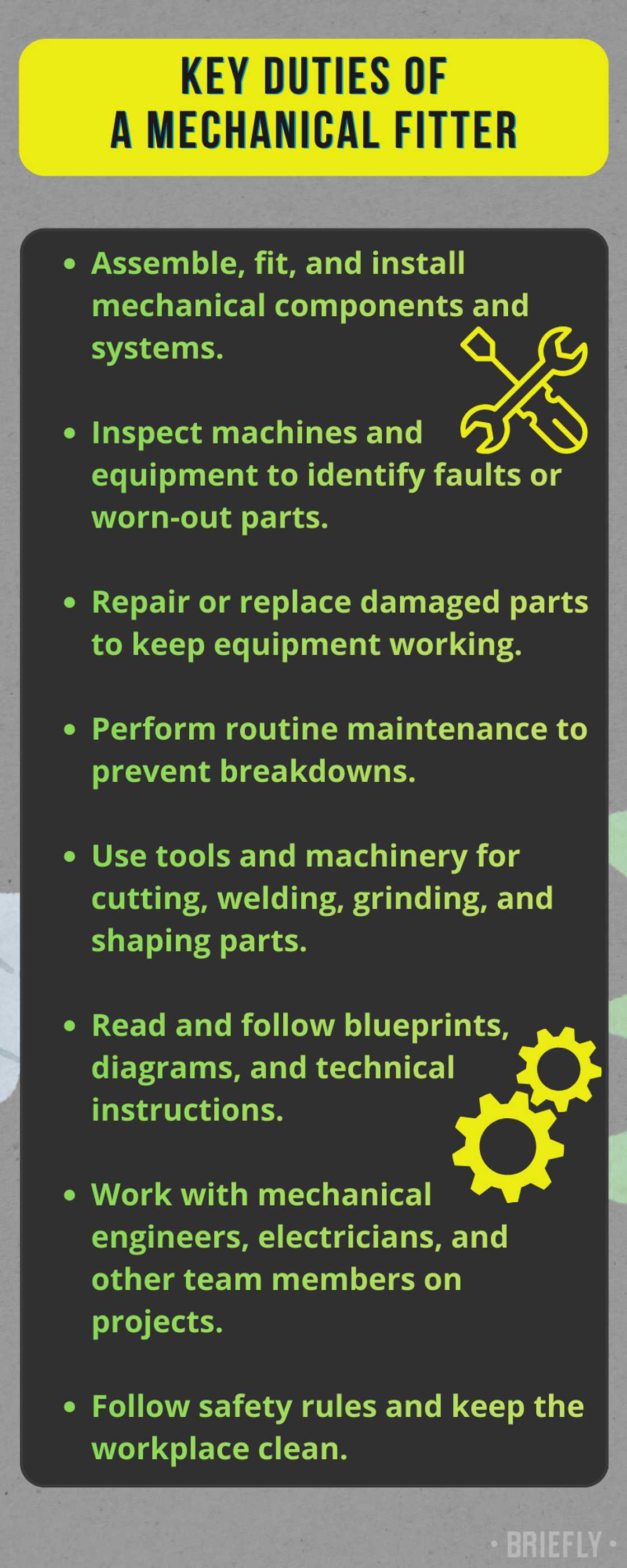
Source: Original
DISCLAIMER: This article is intended for general informational purposes only and does not address individual circumstances. It is not a substitute for professional advice or help and should not be relied on to make decisions of any kind. Any action you take upon the information presented in this article is strictly at your own risk and responsibility!
READ MORE: Chemical engineering salary in South Africa
Briefly.co.za published an article about chemical engineering salaries in South Africa. Chemical engineers focus on optimising the processes involved in the manufacture of foods, fuels, chemicals, pharmaceuticals and other products.
The average chemical engineering salary is a figure that turns heads, reflecting the high demand for these professionals and the critical role they play in the country's industrial development.
Source: Briefly News





